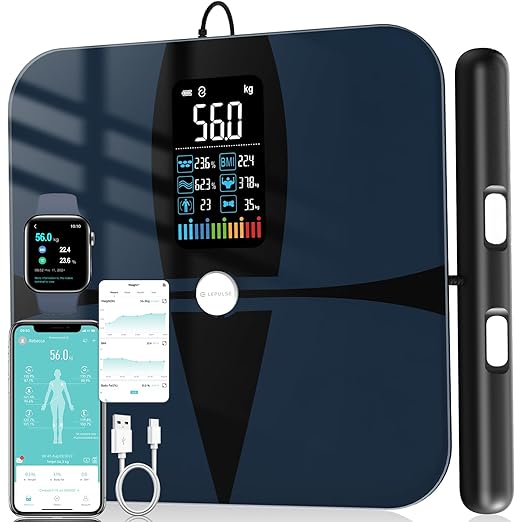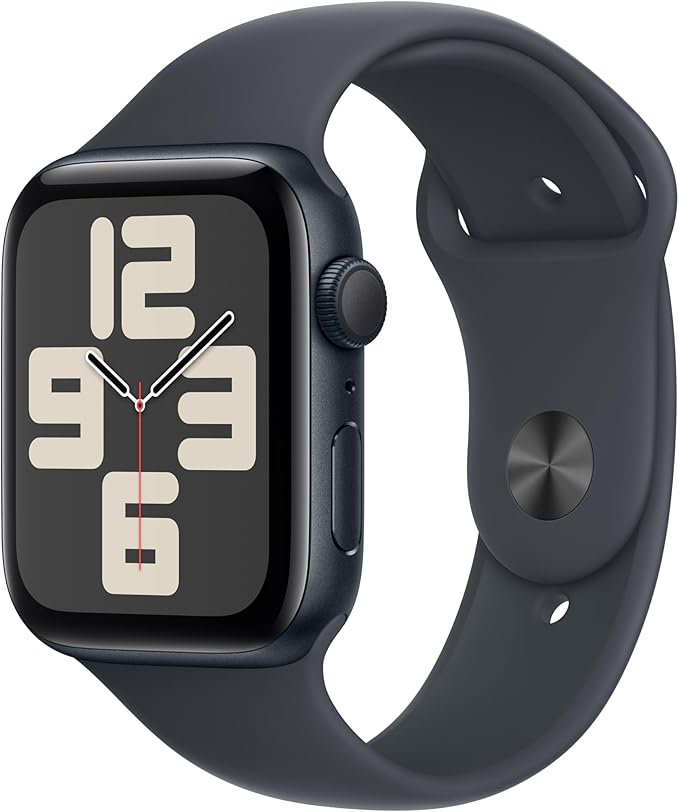BMI Calculator
Calculate your Body Mass Index (BMI) to understand your weight category and health implications. BMI is a simple measure that uses your height and weight to work out if your weight is healthy.
Enter Your Details
BMI Categories:
Quick BMI Facts
Limitations: BMI doesn't account for muscle mass, bone density, age, sex, and ethnicity.
Note: This calculator is for adults (18+). For children and teens, different BMI charts are used.
Important: BMI is a screening tool. For complete health assessment, consult a healthcare professional.
Recommended Products for Health Tracking
Quality products to help you track your health and fitness journey
What is BMI?
Body Mass Index (BMI) is a simple calculation that uses your height and weight to estimate body fat. It's a widely used screening tool to identify potential weight problems in adults.
The BMI Formula
BMI = weight (kg) / height (m)²
BMI Categories
- Underweight:BMI less than 18.5
- Normal weight:BMI 18.5 to 24.9
- Overweight:BMI 25 to 29.9
- Obese:BMI 30 or greater
Why Calculate BMI?
- •Quick health assessment
- •Identify weight-related health risks
- •Track weight management progress
- •Guide fitness and nutrition goals
Frequently Asked Questions About BMI
What is BMI and why is it important?
BMI (Body Mass Index) is a simple calculation that uses your height and weight to estimate body fat. It's an important health screening tool that helps identify potential weight-related health problems. While not perfect, BMI provides a quick way to assess if your weight might be putting your health at risk.
How do I calculate my BMI?
The BMI formula is: BMI = weight (kg) / height (m)². For example, if you weigh 70 kg and are 1.75 m tall, your BMI would be: 70 ÷ (1.75 × 1.75) = 22.9. Our free BMI calculator does this calculation automatically for you.
What are the BMI categories?
- Underweight: BMI less than 18.5
- Normal weight: BMI 18.5 to 24.9
- Overweight: BMI 25 to 29.9
- Obese: BMI 30 or greater
Is BMI accurate for everyone?
BMI has limitations and may not be accurate for athletes, pregnant women, the elderly, or people with certain medical conditions. It doesn't distinguish between muscle and fat, so very muscular people may have high BMIs despite being healthy. BMI is best used as a screening tool alongside other health assessments.
What should I do if my BMI is high?
If your BMI indicates overweight or obesity, consider consulting with a healthcare provider. They can help you develop a safe weight management plan that includes proper nutrition, regular physical activity, and lifestyle changes. Remember, small, sustainable changes are more effective than quick fixes.
Can I use BMI for children and teens?
No, this BMI calculator is designed for adults (18+). Children and teens have different BMI charts that account for age and gender differences in growth patterns. Pediatricians use specialized BMI-for-age charts to assess children's weight status.
How often should I check my BMI?
For most adults, checking your BMI monthly is sufficient for tracking weight changes. However, focus more on overall health indicators like energy levels, fitness progress, and how your clothes fit rather than just the BMI number. Remember, BMI is just one tool in your health toolkit.



